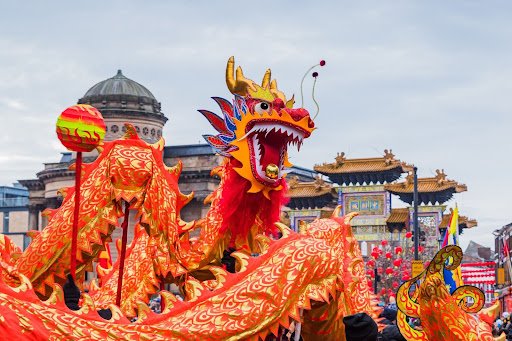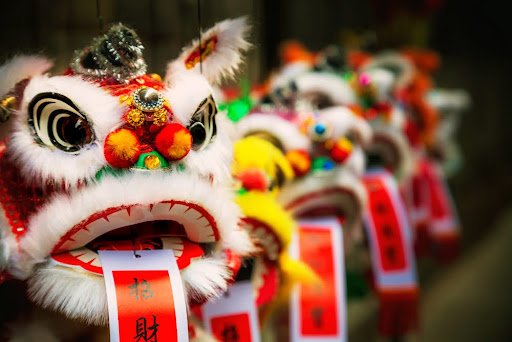Drink like a Local — A Guide to Alcohol in China
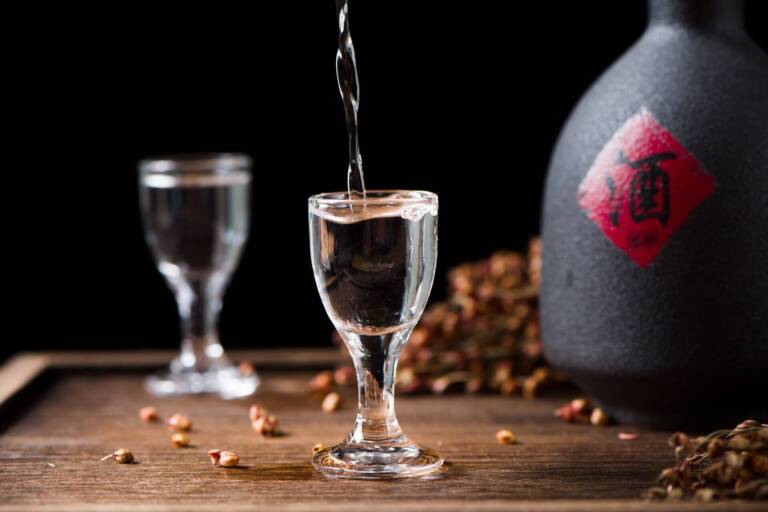
The first time I ventured into a bustling Chinese bar, the atmosphere was palpable with excitement. Everywhere I looked, locals were raising their glasses high, shouting “gānbēi!” and eagerly sharing their favorite drinks with newcomers.
The night was filled with laughter, shared stories, and a deep dive into the intricacies of Chinese drinking culture. By its end, I had not only learned that “gānbēi!” translates to “empty up” but also that after a few rounds of baijiu, the floor seems to have a magnetic pull. And a baijiu hangover is not fun. Like, really, not fun at all.
The well-known Chinese saying, “酒逢知己千杯少” (Jiǔ féng zhījǐ qiān bēi shǎo), which means “even a thousand cups of wine is insufficient when with a dear friend,” perfectly captures the essence of drinking alcohol in China. Chinese alcohol isn’t just about the drink itself; it’s a bridge to strengthen bonds, be it with loved ones, colleagues, or new acquaintances.
Whether you’re sipping Chinese whiskey or other drinks at Chinese gatherings, it’s all about deepening connections and celebrating relationships.
China and alcohol
China, with its vast history and diverse culture, has cultivated a rich and multifaceted relationship with alcohol. This isn’t just about drinking. It’s about traditions, rituals, business dealings, and social bonds. From ancient rituals to contemporary karaoke sessions, alcohol serves as a bridge, connecting people from all walks of life.
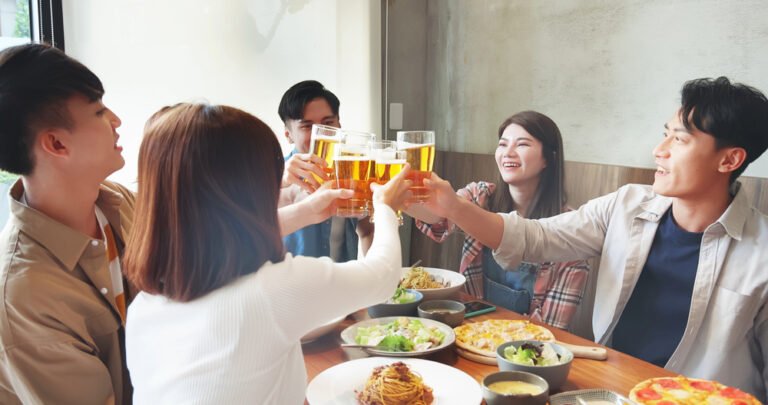
This post is going to look into the nuances of China’s drinking laws, the etiquette to be mindful of, the cultural significance of various drinks, and the most cherished alcoholic beverages in the country. And, of course, it wouldn’t be complete without a few reminders of those nights when the spirit of celebration took an unexpected turn.
China’s rich history with alcohol
China’s tryst with alcohol can be traced back millennia. Ancient texts, artifacts, and even preserved beverages unearthed from archaeological sites bear testimony to the country’s long-standing affair with fermented drinks.
Whether it was emperors hosting grand feasts or commoners celebrating a good harvest, alcohol has always been at the heart of Chinese celebrations. And while the drinks and contexts have evolved, the essence remains the same: bringing people together.
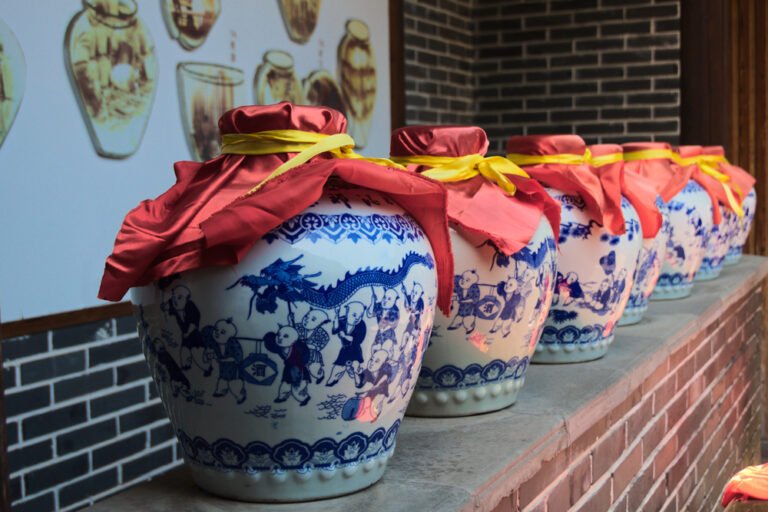
Historical context of alcohol in China
China’s relationship with alcohol is as ancient as its civilization. From ceremonial rituals to royal feasts, alcohol has played a pivotal role in shaping the nation’s cultural and social fabric. Let’s delve a little bit into the annals of history to discover the profound influence and evolution of alcohol in the Middle Kingdom.
- Ancient origins: In ancient China, alcohol wasn’t merely a beverage; it held spiritual significance. It was commonly used in rituals, offered to deities, and even employed in medicinal concoctions. These practices underscored the belief that alcohol had the power to connect the mortal realm with the divine. Ceremonies often involved elaborate rituals where specific drinks were offered to appease gods, seek blessings, or honor ancestors.
- Evolution over the dynasties: As China transitioned through various dynasties, each era brought with it distinct drinking preferences and habits. The Tang dynasty, for example, was renowned for its poets, who often extolled the virtues of wine. In contrast, the Qing dynasty saw a surge in the popularity of baijiu, a potent spirit that continues to be a favorite today. Each dynasty, with its unique socio-political climate, influenced the production, consumption, and cultural significance of alcohol.
The significance of alcohol in Chinese culture and traditions
In China, alcohol is a tapestry woven with threads of history, tradition, and daily life. It’s a symbol of unity during celebrations, a mark of respect when toasting elders, and a medium to forge business relationships. Major festivals, like the Lunar New Year, involve specific drinking rituals, underscoring alcohol’s role in both revelry and reverence.
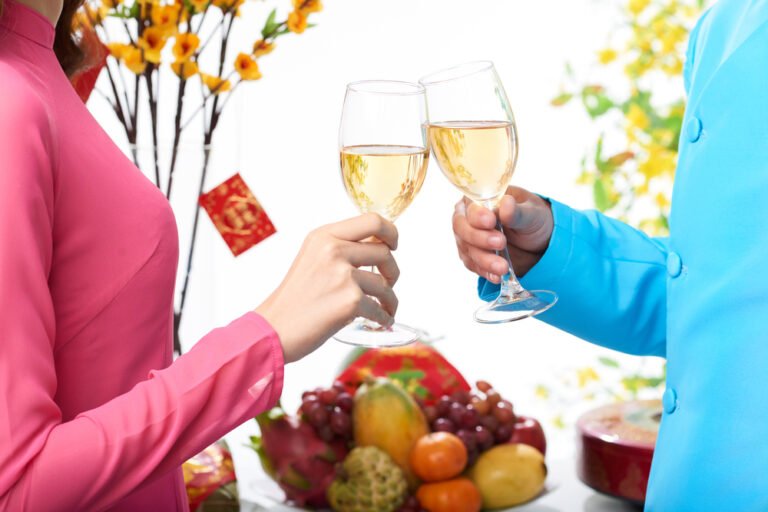
Drinking laws and regulations
Navigating the vibrant drinking culture of China also means understanding its legal framework. From age restrictions to sales regulations, China’s drinking laws ensure that traditions are balanced with safety and order. That’s the theory, anyway!
Let’s check out the rules that govern the consumption and distribution of alcohol in this vast nation.
- Legal drinking age: China mandates that individuals must be 18 years or older to legally consume alcohol. This law is strictly enforced, especially in urban areas, ensuring that the youth are shielded from the potential adverse effects of early alcohol consumption.
- Public drunkenness laws: While China adopts a relatively lenient stance towards public drunkenness compared to some western nations, it’s frowned upon socially. Excessive public inebriation can lead to minor penalties, but more importantly, it’s considered disrespectful and can tarnish one’s reputation.
- Alcohol availability: While alcohol use is lawful in China, the key to reducing its harmful consumption lies in controlling its accessibility. Since the 1980s, the government discontinued the monopoly on alcohol, leading to decentralized management of its materials, production, and sales.
China regulates alcohol under the Food Safety Law, with the licensing system playing a pivotal role. That means there’s no enforceable legal provision to regulate when or where alcoholic beverages are sold. The Law on the Protection of Minors bans selling alcohol to those under 18, but violations are common.

Drinking and driving laws
The Road Traffic Safety Law, revised in 2011, imposes stricter penalties based on blood alcohol concentration (BAC). There’s a distinction between punishments for drinking and driving and drunk driving, with the latter having more severe consequences. There are even strict penalties for letting someone visibly inebriated get behind the wheel of a vehicle. Despite these laws, drinking and driving remain a significant issue in China.
Over the years, there has been a noticeable trend in the drinking habits of the Chinese population. Data indicates a steady rise in alcohol consumption from 2007 to 2015. Specifically, the prevalence of current alcohol use among Chinese adults over 18 years increased from 35.7% in 2007 to 41.3% in 2015.
This growth is more pronounced among men, with the percentage rising from 55.6% in 2007 to 61.7% in 2015. Women, traditionally less involved in the drinking culture, have also shown an uptick in consumption, with their numbers moving from 15.0% in 2007 to 20.3% in 2015.
This increasing prevalence underscores the significance of alcohol in modern Chinese society, reflecting both its traditional roots and its evolving role in contemporary social interactions.
Differences in laws between mainland China and Hong Kong/Macau
Mainland China, Hong Kong, and Macau, each with its unique historical context, have distinct sets of regulations concerning alcohol. For instance, while the legal drinking age in mainland China is 18, it’s 16 in Macau. Such variations are rooted in their individual colonial histories and administrative structures.
In China, sharing a drink is more than a casual gesture. It’s a symbol of trust, camaraderie, and mutual respect. Business deals are often sealed over rounds of baijiu, and refusing a drink can sometimes be seen as a slight. It’s a dance of diplomacy, where each toast carries nuanced implications.
For many outsiders, it might come as a revelation how integral alcohol in China is, especially within its professional landscape. We’re not just talking about colleagues sharing a casual drink post-work. Think more along the lines of corporate feasts, networking soirees, and client-centric dinners that have a dash of social flair.

The age-old tradition of using alcoholic drinks in China, like Chinese whiskey or other popular drinks in Chinese culture, to forge and strengthen bonds is very much alive in the corporate realm. Sharing a drink isn’t just about the beverage; it’s a ritual to establish trust and mutual respect. The shared hangover probably helps.
In the world of Chinese business, it’s not uncommon for companies to even have designated individuals (also known as proxy drinkers) or even junior staff to drink on behalf of their superiors.
Related Reading: 15 Chinese Jokes to Crack to Your Friends
Drinking rituals in China
Chinese drinking sessions are punctuated with toasts, each carrying its significance. There are also loads of really fun Chinese drinking games, often played to lighten the mood and strengthen bonds among participants. Be careful with those, though. The point of Chinese drinking games is that the rules are pretty easy, so there’s more time for downing shots.
Dangers of overdrinking (and how to politely abstain)
While the spirit of “gānbēi!” is infectious, it’s essential to recognize one’s limits. Overindulgence can lead to terrible social faux pas (or, of course, health issues). If you want to abstain or limit your intake, it’s crucial to communicate this politely, often citing health or personal reasons, to ensure your hosts aren’t unintentionally offended.
Navigating the world of alcohol in China is an experience in itself. When you’re a guest in China, you’ll quickly notice that your glass rarely stays empty for long. It’s a cherished tradition for hosts or friends to keep refilling glasses, especially after a toast or when they spot an empty vessel.
And if you’re the younger one in the group, it’s generally expected that you’ll be the one topping up the drinks for those older or of higher rank than you. Although, when you’re out with friends, this rule tends to relax a bit.
Chinese drinking isn’t just about alcoholic drinks in China. It’s a testament to one’s trust and bond with their companions. The more you drink, the more trust you’re showing. Remember, drinking alcohol in China is a communal affair.
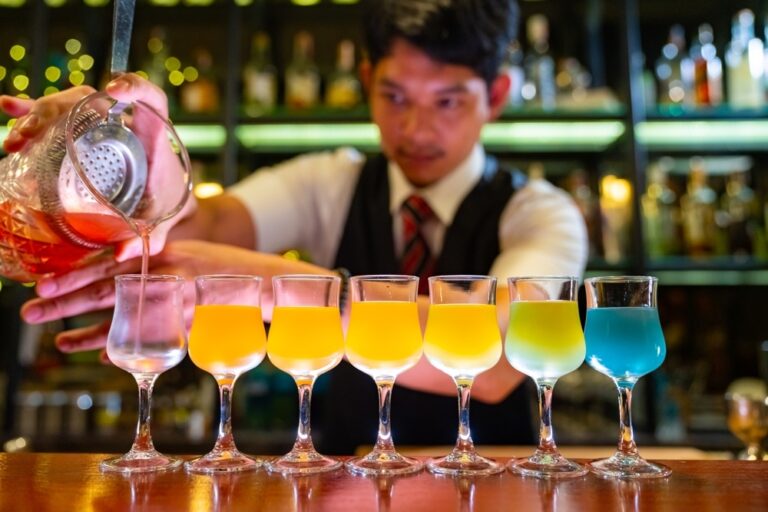
When you hear “gānbēi” and empty your glass, it’s a sign of your genuine respect and sincerity. Encouraging others to drink might be seen as peer pressure in the west, but in China, it’s a heartfelt gesture of camaraderie. This act, known as “劝酒” (quànjiǔ), has roots deep in history.
The Tang dynasty poet WángWéi (王维, 701-761) even referenced quànjiǔ in his poignant farewell poem, emphasizing the depth of this tradition: “I plead you to drink another glass, for there are no familiar friends beyond Yang Pass.”
However, while drinking is a social glue, it’s crucial to remember that moderation is key. Overindulging to the point of creating a scene is a no-no. The Chinese principle of “saving face” or upholding one’s reputation is paramount, even when tipsy.
It’s all about how much Chinese alcohol you can handle without becoming the talk of the town for the wrong reasons. Basically, if you’re still capable of saying these Chinese tongue twisters, you’re probably fine for another drink.
If you’re not keen on downing too much, it’s wise to set your boundaries early on in the gathering. A simple “我酒量不好” (wǒ jiǔliàng bùhǎo), which translates to “I can’t handle too much alcohol”, can be your savior. Or, you can always come up with a reason, like an early meeting or health concerns. A subtle hand over your glass can also signal to an enthusiastic host that you’re good for now.
Related Reading: How to Say No In Chinese: 12 Ways
If you’re not a fan of potent Chinese whiskey or other strong drinks in Chinese culture like baijiu, you can always opt for lighter options like Qingdao beer. It lets you partake in the toasts without getting too tipsy. And for those who’d rather skip the alcohol altogether, there’s a delightful alternative: tea.
The practice of “以茶代酒 (yǐ chá dài jiǔ)” or substituting tea for alcohol is a graceful way to engage in the Chinese drinking culture without actually consuming alcohol. It’s especially handy if you’re not at a corporate event where alcohol might be the primary beverage.
But if you do go overboard and make a bit of a spectacle of yourself, remind yourself of the many ways that you can say sorry in Chinese.
Related Reading: The Ultimate Guide to Learning Chinese Online
Popular Chinese drinks
China’s vast landscape and rich history have given birth to a diverse array of alcoholic beverages. From potent spirits to mellow wines, this section delves into the drinks that have quenched the nation’s thirst for centuries and those that are making waves today.
Baijiu and Huangjiu
Baijiu, often dubbed “liquid fire” due to its potency, is a clear spirit made from fermented grains. Its flavor profile is diverse, ranging from sweet to savory, depending on its ingredients and production methods.
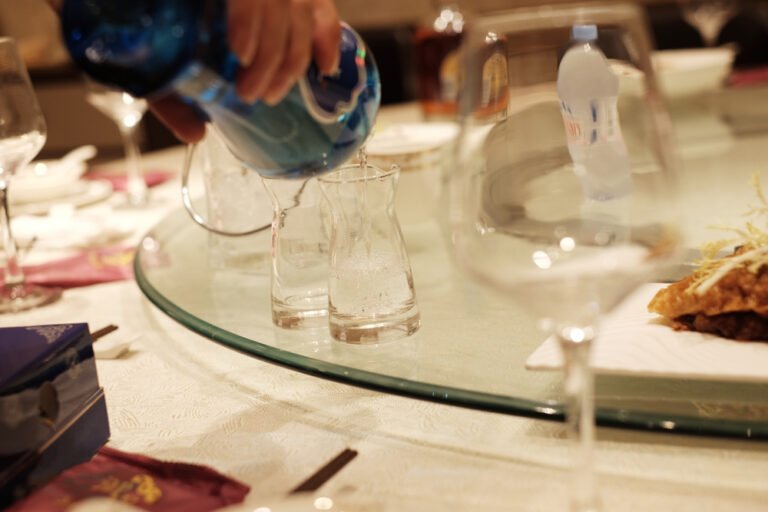
Huangjiu, on the other hand, is a milder, amber-colored wine made from rice or wheat. Both these beverages have deep historical roots and are integral to Chinese celebrations.
Beer
Chinese beers, like Tsingtao or Snow Beer, are lighter lagers perfect for the country’s varied climate. Over the years, these brands have garnered international acclaim, representing China on the global beer stage.
Wine
For over three millennia, the Chinese have been enjoying wine, thanks to the nation’s abundant grapes and other fruits like plums and peaches that are perfect for alcohol production. Today, there are more than 50 grape varieties contributing to the diverse range of alcoholic drinks in China. Some wines feature a blend of these grapes, while others showcase a single type. And with each passing year, as winemaking technology evolves, this list of grape varieties keeps expanding.
Wine in China isn’t just a drink. It’s deeply rooted in art and culture. Take, for instance, the renowned calligrapher Wang Xizhi from the Eastern Jin dynasty. He crafted what he considered his most exceptional piece under the influence of wine and couldn’t replicate its brilliance when sober. Legendary poets like Li Bai and Han Yu have penned verses celebrating wine and the artistic inspiration it brings.
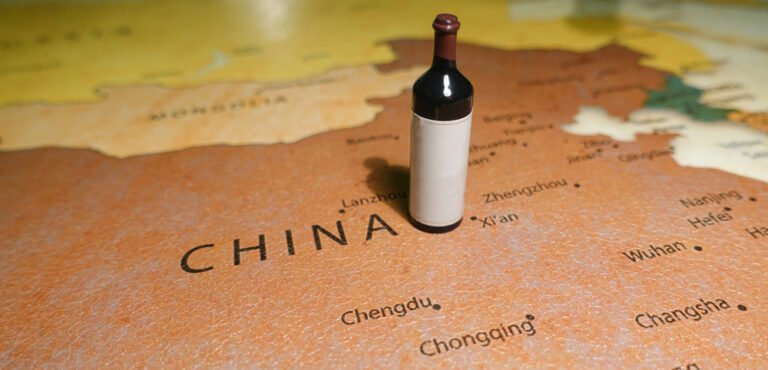
The allure of red wine in China isn’t just about its taste either. Its vibrant red hue, considered lucky in Chinese culture, adds to its charm. Plus, traditional Chinese medicine suggests that red wine has health benefits, positioning it as a healthier choice compared to the potent baijiu.
Fast forward to today, and China proudly stands among the top 10 wine producers globally. Ningxia, in particular, has gained international acclaim as a prime wine-producing region. The Chinese are now more open to sipping on local wines, challenging the dominance of renowned wine-producing nations like France, Italy, the U.S., and Australia.
Those who indulge in Chinese wine typically belong to the more educated and affluent segments of society. For them, sipping on wine is more than just a pastime; it’s a symbol of a refined lifestyle and elevated status.
While China might not be the first name that pops up when thinking of wine, regions like Ningxia are fast gaining recognition for producing world-class wines. The Chinese wine industry, though relatively young on the global stage, is vibrant, innovative, and poised for growth.
Cocktails
Modern Chinese cities, with their cosmopolitan flair, have embraced the global cocktail culture. Bars in places like Shanghai or Beijing often fuse traditional Chinese ingredients with international spirits, resulting in unique and delightful concoctions.
Related Reading: So Many Ways to Say “Goodbye in Chinese”
Where to drink in China
The experience of drinking in China is as much about the ambiance as it is about the booze. Whether you’re looking to toast in a bustling city bar or sip quietly in a traditional teahouse, let’s check out the best spots to enjoy China’s alcoholic offerings.
- Bars and nightlife: Cities like Shanghai and Beijing are known for their vibrant nightlife. Neon-lit streets are lined with bars, each offering a unique ambiance, from sophisticated lounges to boisterous pubs.
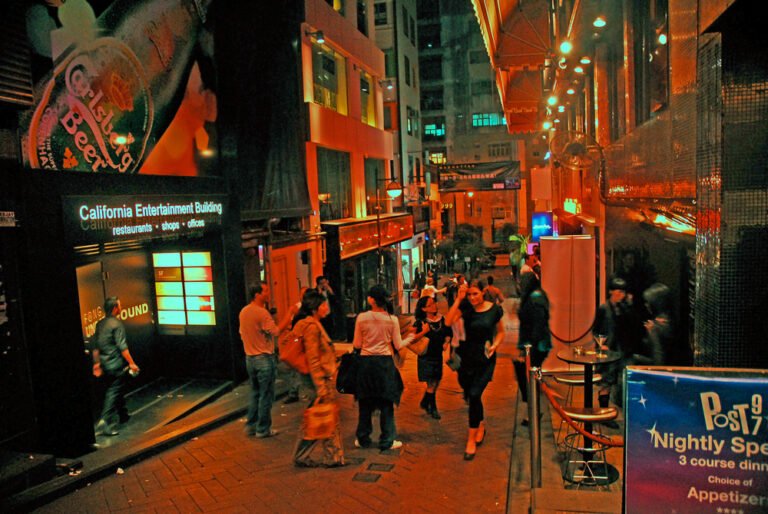
- Night markets: These bustling hubs offer a sensory overload, with stalls selling everything from local delicacies to trinkets. Here, you can enjoy local brews paired with street food, making for a quintessential Chinese experience.
- Karaoke bars: KTVs, or karaoke bars, are a cultural phenomenon in China, although Covid is widely considered to have contributed to the collapse of the industry. Where karaoke bars are still open, groups rent private rooms, order food and drinks, and sing their hearts out to both Chinese and international hits.
- Hotpot restaurants: Hotpot, a communal dining experience where diners cook ingredients in a simmering pot of broth, is often accompanied by rounds of drinks, enhancing the flavors and the overall experience.
- Business dinners: These formal events, often held in upscale restaurants, involve multiple courses paired with a selection of beverages. It’s a setting where business and pleasure seamlessly intertwine.
Related Reading: How to Order Chinese Food in a Chinese Restaurant
Regional drinking habits in China
Just as China’s culinary tastes vary from region to region, so do its drinking preferences. From the rice wines of the south to the strong spirits of the North, let’s check out the diverse drinking cultures that have developed across this vast nation.
- North vs. south: The vast expanse of China means diverse drinking habits. The colder northern regions might prefer stronger spirits like baijiu to combat the chill, while the milder south might lean towards lighter beverages like beer or huangjiu.
- Special regional drinks: Each region in China boasts its signature alcoholic beverage, often rooted in local ingredients and traditions. These drinks are a reflection of the region’s history, climate, and culture.
Modern trends and the future of drinking in China
While deeply rooted in tradition, China’s drinking culture is not immune to change. From the evolving tastes of the Chinese populace to the influence of the west, and the innovative trends shaping the future of alcohol consumption in the Middle Kingdom, here’s what to expect.
- Craft beers and international liquors: With increasing global exposure, there’s a growing appetite for craft beers and international spirits in China. Microbreweries are sprouting across cities, and imported liquors are becoming household names.
- Changing attitudes: The younger Chinese generation, with its global outlook, is redefining the country’s drinking landscape. While they cherish traditional beverages, they’re also open to exploring new flavors and experiences.
- Influence of western drinking culture: Western festivals, drinking games, and even beverages are making their mark in China. This fusion of east and west is leading to a dynamic and ever-evolving drinking culture.
Related Reading: How to Say “Nice To Meet You” In Chinese: 10 Phrases
Tips for foreigners drinking in China
Navigating the intricate world of Chinese drinking etiquette can be a daunting task for outsiders. From understanding toasts to recognizing when to decline a drink, this section offers invaluable insights to help foreigners drink confidently and respectfully in China.
- Understanding local customs: To truly appreciate and enjoy China’s drinking culture, it’s essential to be aware of local customs. This not only enhances the experience but also fosters a bit more of that all-important mutual respect.
- Politely declining a drink: While drinking is a cherished activity, it’s also essential to recognize and respect personal boundaries. Knowing how to gracefully decline a drink can ensure a pleasant experience for all involved.
- Staying safe: With the vast array of booze options available, it’s crucial to be aware of the quality and authenticity of what you’re consuming. This ensures not only a great drinking experience but also safety and well-being.
- Know your limits: Chinese drinking sessions can be intense. It’s essential to know your alcohol tolerance and stick to it.
- Always toast with two hands: When clinking glasses, use both hands to show respect, especially with elders or superiors.
- Decline politely: If you don’t want to drink, a simple “thank you” with a hand on your glass is a polite way to decline.
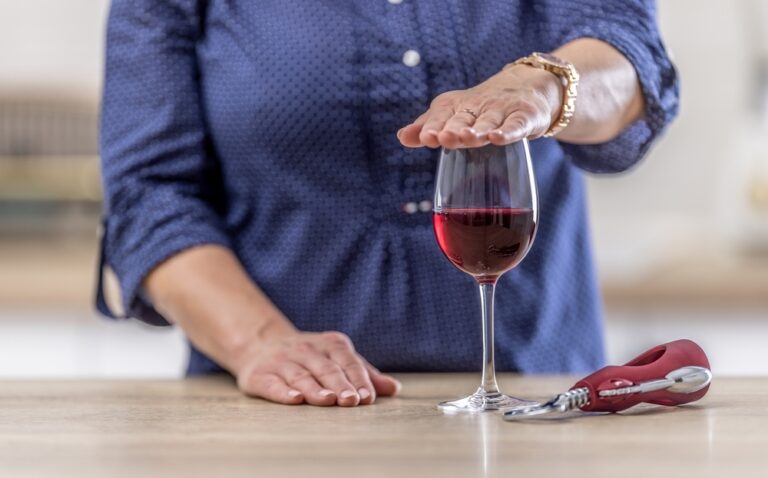
- Stay hydrated: Drink plenty of water alongside alcohol to prevent hangovers and dehydration.
- Eat up: Chinese drinking culture often pairs alcohol with food. Eating helps absorb the alcohol and reduces its effects.
- Watch out for baijiu: This potent Chinese spirit can be very strong. Approach with caution if you’re not used to high-proof alcohol.
- Return the favor: If someone toasts to you, it’s polite to return the toast later in the evening.
- Avoid mixing drinks: Stick to one type of drink to minimize the risk of feeling unwell.
- Travel safely: Always arrange for a designated driver or use public transportation after drinking. Never drink and drive.
Related Reading: Giving Compliments In Chinese: 35 Examples
Savoring the Last Drop: Final Thoughts
China’s relationship with alcohol is a beautiful tapestry of history, tradition, and modernity. As you navigate this vast and diverse landscape, it’s essential to approach it with an open mind and heart.
By understanding and respecting the intricacies of China’s drinking culture, you can truly appreciate the depth and significance of each sip. Whether you’re raising a glass of baijiu for a toast or sipping on a delicate wine from Ningxia, remember to cherish the moment, the company, and the rich heritage that each drink represents. Gānbēi!
Master Mandarin the Effortless Way
Dive into our exclusive webclass and unveil the shortcuts to mastering Chinese faster than you ever imagined. Transform your language journey from daunting to delightful.







